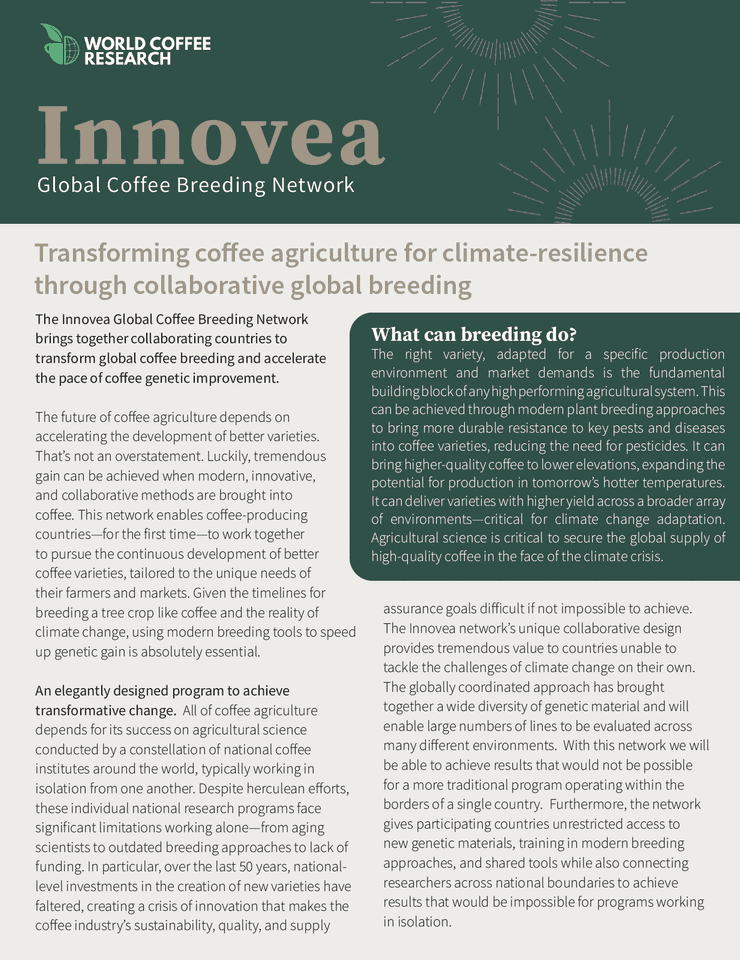Rising temperatures, unpredictable rainfall, and new pests and diseases are putting coffee farms and the world’s coffee supply at risk. Around the world, most coffee research programs work alone. Despite decades of dedication, many face limited funding, small teams, and outdated tools. As a result, few new coffee varieties are being created—and those that exist can’t keep up with the pace of change.
Without faster innovation, millions of farmers could lose their livelihoods and the industry and consumers will face reduced supply, higher prices, and deeper sustainability challenges within a generation.
The Innovea Global Coffee Breeding Network unites coffee-producing countries to breed better coffee—faster, cheaper, and smarter than ever before. Now expanded to include both arabica and robusta, Innovea is the largest and most ambitious collaborative coffee breeding network in the world.
This network enables national coffee institutes to adopt modern breeding approaches and work together, sharing data and tools, and know-how. The result is a continuous pipeline of better coffee varieties, tailored to the unique needs of local farmers, responsive to global markets, and resilient to a changing climate. Building on the unique strengths of each collaborating partner, together we can speed up the creation and delivery of improved varieties for farmers. Modern breeding techniques also allow for developing varieties with multiple traits simultaneously, including enhanced pest and diseases resistance, reducing the need for crop protectants, higher cup quality coffee including at lower elevations, and higher yields across a broader array of environments—critical for climate change adaptation.
Leveraging cutting-edge genomic and data-driven breeding technologies, and using a demand-led, collaborative framework, Innovea accelerates the creation of coffee varieties that thrive in the face of heat, drought, and disease while delivering exceptional cup quality.
- For farmers: More productive, climate-smart trees that protect livelihoods and reduce risk.
- For the industry: Stable, diversified supply of quality coffee to meet future demand.
- For consumers: Ensuring access to a diverse range of coffee flavors and experiences, today and in the future.
- For science and national partners: Access to shared data, cutting-edge tools, and global collaboration that accelerates breeding progress.
Through participation, countries gain access to a diverse portfolio of improved breeding materials that are more productive, climate-adapted, and market-ready than anything available today. From that foundation, each national program sustains an ongoing, science-based pipeline of innovation—continuously releasing better, more resilient, and more diverse coffee trees for farmers in their countries. This ensures the resilience, quality, and competitiveness of coffee for generations to come.












